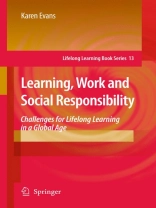The concept of individual responsibility has taken on a signi?cance comparable to that of ‘choice’ in the global rise of neo-liberalism of the late 20th and early 21st centuries. The rise of neo-liberalism is most often analysed through the lenses of theory, governmentality and societal structures. There has been a tendency for an- ysis to become overly abstract with the subjective experiences of the social actors missing dimensions in the literature. This book draws on more than 20 years of international research that has focused on the subjective experiences of people as actors in changing social landscapes. These landscapes are differently positioned politically, economically and socially, in relation to the rise of neo-liberalism. Comparisons enable the differences in people’s experiences to be located, explored and explained in relation to different soc- economic landscapes, thus throwing into relief the effects of neo-liberal policies where they are found. My approach is to create an extended dialogue between ideas and evidence, starting close to home, and then extending to speci?c international comparisons and to wider explorations of the central themes of the book: human agency and social responsibility. Finally, I return to social landscapes of Britain, to review the position and potential for social change in societies that exemplify what Sennett has termed ‘Anglo-American regimes’, in contrast to ‘Rhine regimes’ as exempli?ed by Germany.
Inhaltsverzeichnis
Learning for a Living: The Powerful, the Dispossessed and the Learning Revolution.- Taking Control?: Early Adult Life in Contrasting Social Landscapes.- Students Anticipating the Future.- Workers in Control of the Present?.- Living at the Margins and Finding Ways to Work.- Gender, Work and Learning.- Participation, Social Life and Politics.- Beyond Individualisation: Human Strivings for Control of Their Lives.- Systems and Societies in Transition: Challenging Inequalities, Choosing Inclusion.












